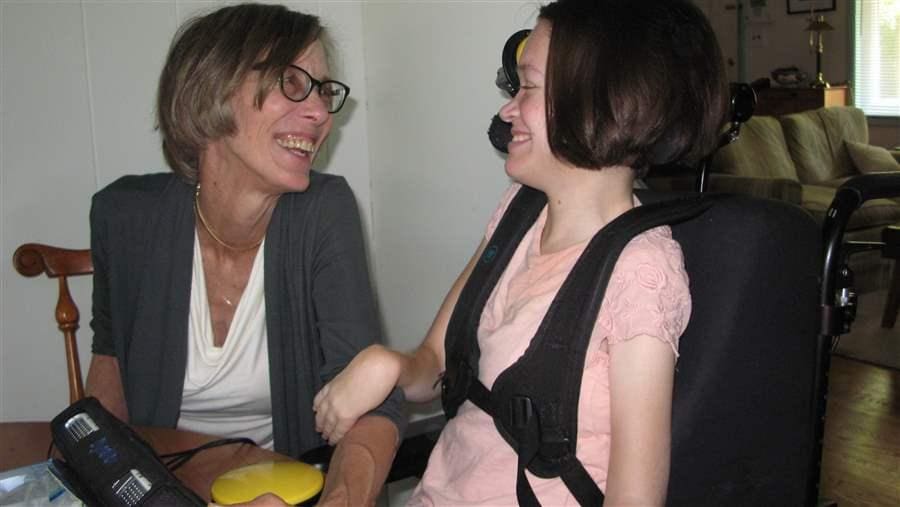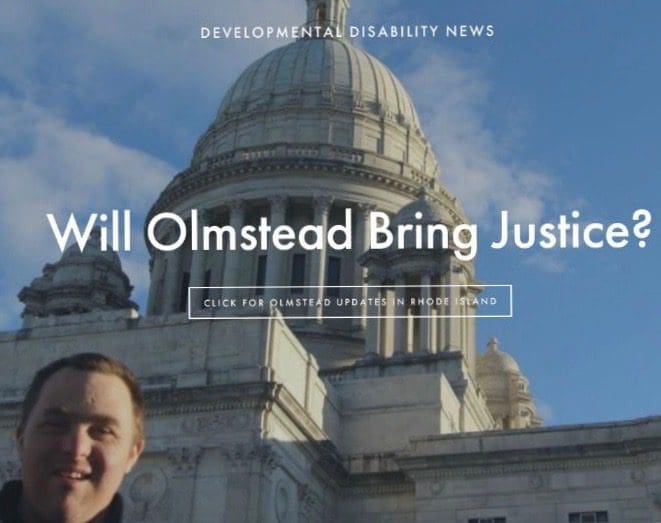Search Posts
Recent Posts
- Rhode Island Weather for June 1, 2025 – Jack Donnelly June 1, 2025
- To Do in RI: 26th Annual Rose Show of the Rhode Island Rose Society June 1, 2025
- Victory is ours: Victory gardens are blossoming again – Chuck Norris June 1, 2025
- Ask Chef Walter: The problem with “The Best” – Chef Walter Potenza June 1, 2025
- Gimme’ Shelter: Kava is waiting at the Providence Animal Control Center June 1, 2025
Categories
Subscribe!
Thanks for subscribing! Please check your email for further instructions.

Concerns for Adults with Developmental Disabilities and Coronavirus
Photo: Pew Charitable Trust
By Gina Macris, contributing writer on developmental disabilities
The incidence of coronavirus in Rhode Island’s group homes for adults with developmental disabilities remains relatively low – at a little over 7 percent – but in the last week there have been two more deaths among residents in congregate care, for a total of 6 fatalities.
Of some 1180 persons living in private or state-run group homes, 88 have tested positive for COVID-19, according to a spokesman for the state Department of Behavioral Healthcare, Developmental Disabilities and Hospitals (BHDDH.) Seventeen of the 88 are hospitalized, the spokesman said May 4.
Previously, one group home staff member was reported as a casualty in the COVID-19 pandemic. No updated figures on additional deaths among staff, if any, were available, the BHDDH spokesman said.
The release of the Department of Health’s (DOH) 34-page “Crisis Standards of Care Guidelines” April 30 has drawn criticism from Disability Rights Rhode Island for failing to offer specific assurances that those hospitalized would not be subject to health care rationing because of their disabilities.
“We find the standards concerning,” said Morna Murray, the DRRI executive director. “The state has distanced itself from specific directives and is relying on hospitals to develop their own individual standards.”
She said the standards are “problematic and vague with respect to prioritization, triage processes, exclusion from treatment, and the suggested triage and decision-making tools in the Appendix,” Murray said.
A DOH spokesman responded that state’s health agency has a “commitment to ensuring equitable and just access to care for all Rhode Islanders, especially more vulnerable populations.
“We worked hard to try to have that commitment reflected in the document that was developed. Having said that, this is important feedback that we are going to consider internally as we look forward and think about ways that we can better ensure health equity for everyone throughout the state,” said the spokesman, Joseph Wendelken.
Murray said DRRI will follow up with partners in the community and other experts to provide a formal response to “these unsatisfactory standards.”
The standards are not now in effect and would be implemented, under the direction of DOH, only if the capacity of the overall health care system is overwhelmed, DOH explained in a press release accompanying the document. To read it, click here.
“The swift construction of temporary surge or “alternate hospital sites” in Rhode Island as a part of the State’s coronavirus disease 2019 (COVID-19) response provide another buffer from the need to implement these plans, should Rhode Island experience a surge in the near future,” Wendelken said in statement.
DDD Clarification on Staffing
In a recent COVID-19 update, the state Division of Developmental Disabilities clarified earlier messages which some found confusing about whether those who independently direct a loved one’s program of supports may hire a family member to provide care.
The most precise information is that “during the COVID-19 pandemic, people who ‘self-direct’ can hire any qualified adult, including family members and parents, with the exception of legal guardians.”
BHDDH officials are conducting an additional legal review to determine whether individuals receiving services who have legal guardians can hire those guardians as employees to provide supports that usually would be provided by staff outside the family, according to the newsletter.
Employees typically must pass a background check before they are hired, according to the newsletter, but during the COVID-19 crisis, the rule has been relaxed to allow for a check to be conducted within 60 days after the end of the current state of emergency.
The newsletter covers additional COVID-19-related topics of interest to those with developmental disabilities, their families, and those who work in the developmental disabilities field.
To read the newsletter in full, click here.

Gina Macris is a career journalist with 43 years’ experience as a reporter for the Providence Journal in Providence, RI. She retired in 2012. During her time at the newspaper, she wrote two series about her first-born son, Michael M. Smith. Both series won prizes from the New England Associated Press News Executives Association. Michael, now in his 30s, appears on the cover page, in front of the Rhode Island State House.

